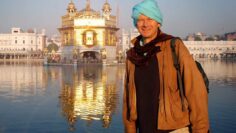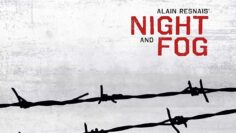The Neanderthals: Tracking Our Ancestors
The Neanderthals: Tracking Our Ancestors delves into the mysterious world of our ancient human relatives. Set against the backdrop of Ice Age Europe, it takes viewers on a journey through time, exploring the lives, cultures, and ultimate fate of the Neanderthals.
The documentary follows a team of renowned researchers, including British paleoanthropologist Chris Stringer and French colleague Ludovic Slimak, as they traverse northern France, southern England, and the island of Jersey. These experts piece together the puzzle of Neanderthal existence, examining archaeological sites and analyzing fossils to uncover the secrets of a species that thrived for nearly 300,000 years.
Viewers are transported to a time when the North Sea was frozen over, and the English Channel was merely a small, easily crossable river. The film paints a vivid picture of the Neanderthal’s world, describing how they lived in harmony with their ever-changing environment. It explores their diet, which consisted of meat from prey animals and edible wild plants, as well as their use of natural resources for cooking and heating.
One of the central questions is the extent of Neanderthal cognitive abilities. The researchers discuss whether this ancient species was capable of structured thinking and if they developed cultures, languages, and complex societies. By examining the evidence, it attempts to gauge the intelligence of Neanderthals and understand the adaptive strategies that allowed them to survive for hundreds of thousands of years.
The documentary also addresses the intriguing question of Neanderthal extinction. It explores various theories about why this once-thriving species disappeared around 30,000 years ago, despite having successfully inhabited a vast area stretching from northern France to the Belgian coast and from the Channel Islands to southern England.
The film employs cutting-edge research methods and technologies to bring the world of Neanderthals to life. Through careful analysis of archaeological sites and fossils, it offers viewers a glimpse into the daily lives, social structures, and potential cognitive capabilities of our ancient relatives. It challenges long-held assumptions about Neanderthals and presents a more nuanced view of their existence.
By shedding new light on Neanderthal evolutionary history, it aims to demystify our ancestors and provide a deeper understanding of human origins. It raises thought-provoking questions about the similarities between Neanderthals and modern humans, encouraging viewers to reconsider their perceptions of this extinct species.
The narrative is enhanced by stunning visuals of the European landscapes where Neanderthals once roamed. These scenes help to contextualize the scientific findings and bring the ancient world to life for viewers. The combination of expert commentary, archaeological evidence, and vivid recreations makes for a compelling and educational viewing experience.








